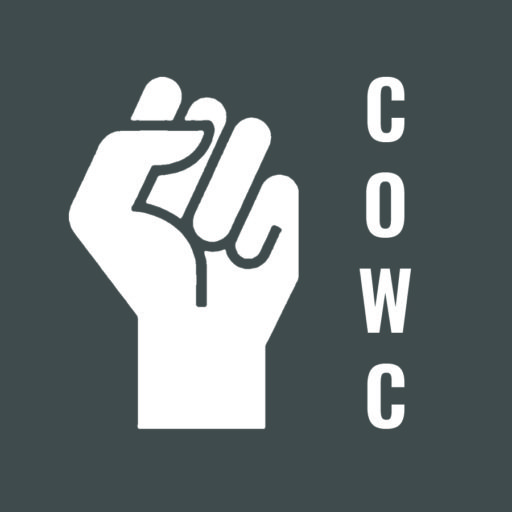Women’s Workplace Rights Seminar
By Isbel Alvarado
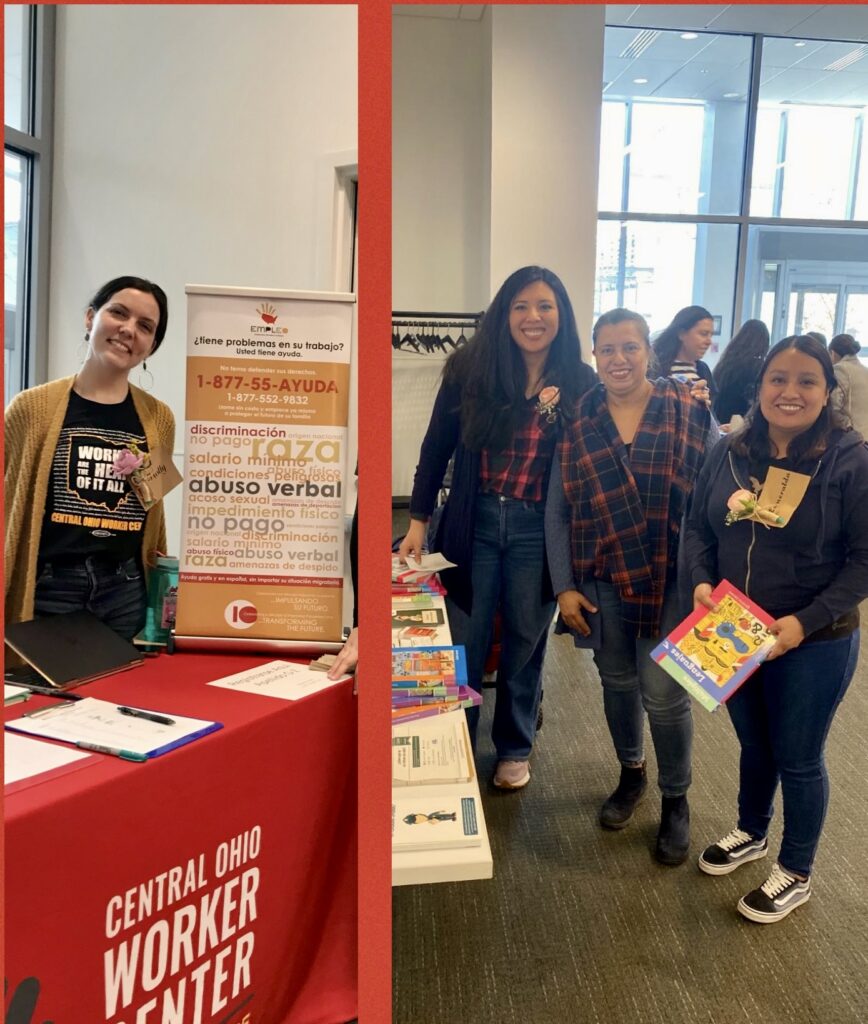
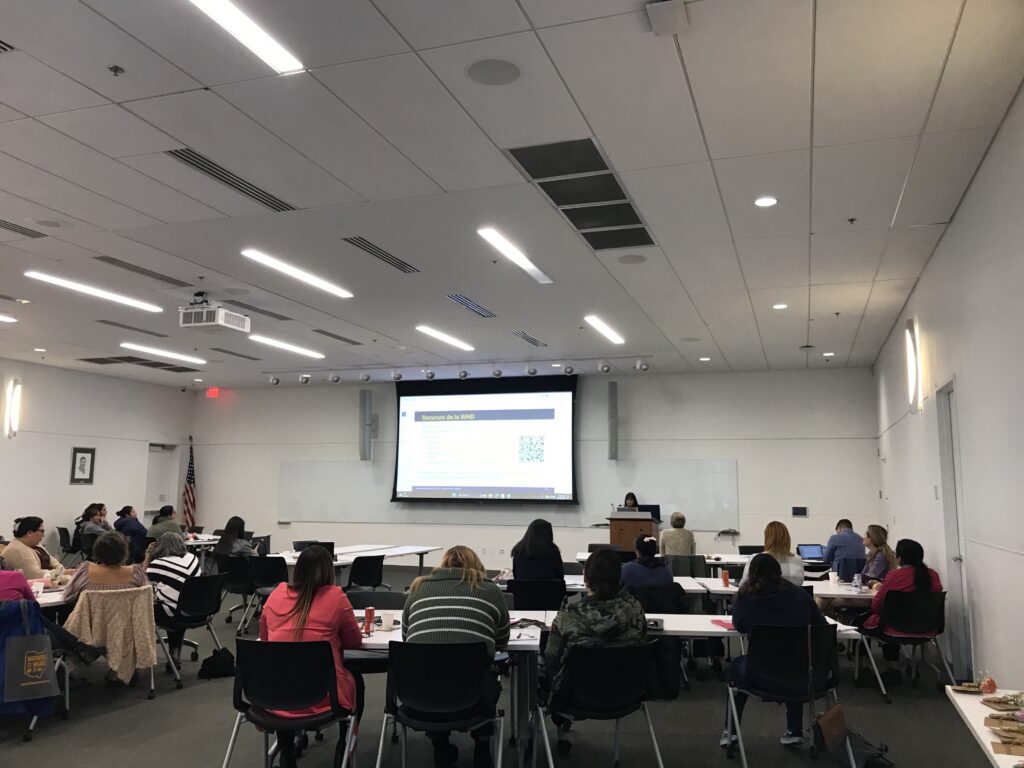
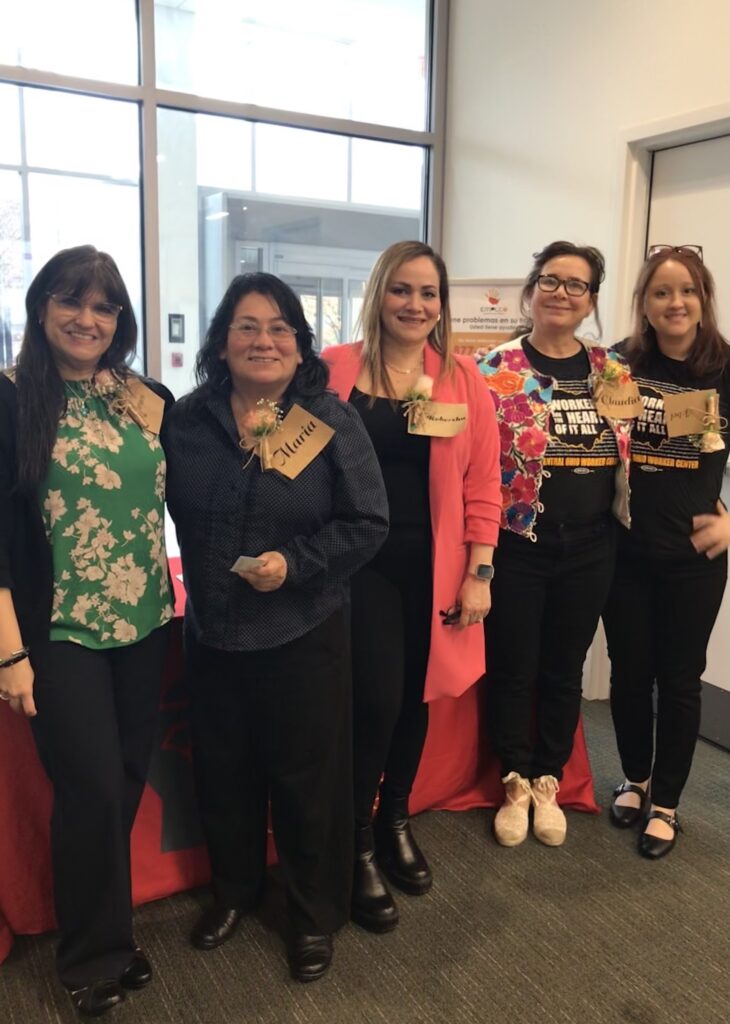
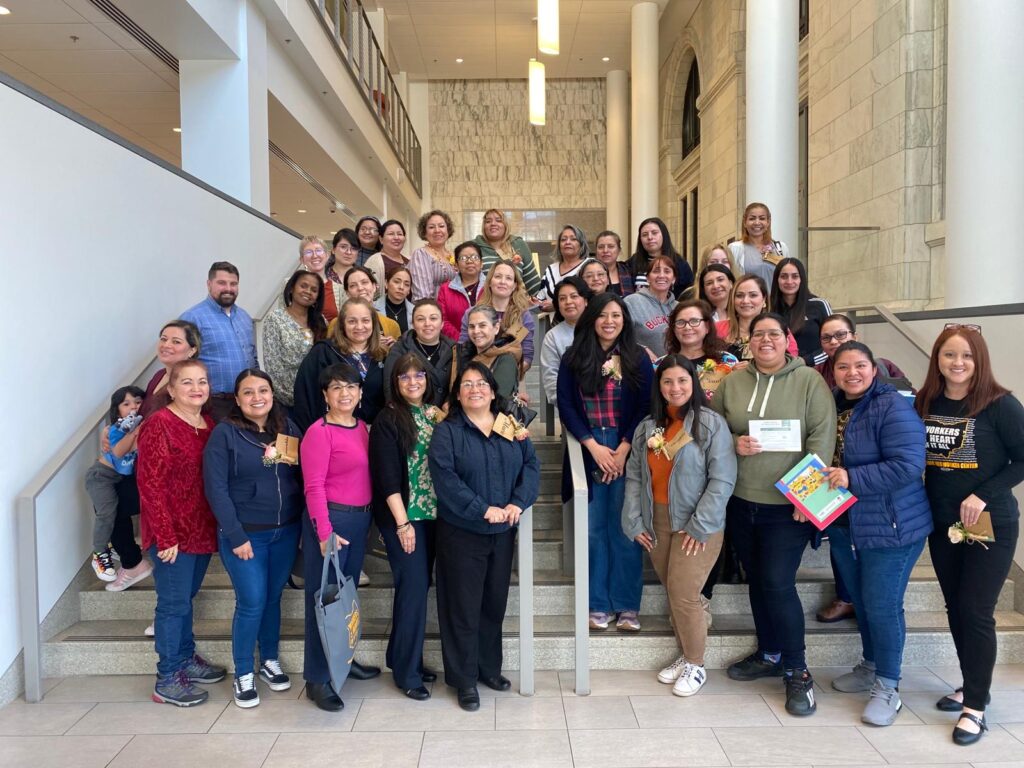
Historically, women have been marginalized, discriminated against and have faced numerous barriers at work. The alternatives have been limited mainly due to unawareness of our rights and the resources available to assert them. This has prevented or made it more difficult for us to create long-term economic stability and become leaders in our jobs and communities. This past Saturday, more than 35 committed immigrant women took their time to change this by,
- learning their rights in the workplace,
- feeling empowered to stand their ground and speak out regardless of their immigration status,
- equipping themselves with the knowledge to become leaders and advocates,
- and gaining a sense of belonging by learning together and directly engaging with all presenters who shared such vital resources and knowledge with them.
First, women learned about their right to be paid properly. Carmen Reyes Rodriguez, Assistant District Director at the Wage and Hour Division, of the federal Department of Labor, educated participants on the rights in the workplace. Specifically, Carmen shared provisions on the minimum wage, overtime, prompt pay, record-keeping, protections against retaliation and how to file a complaint with the DOL-WHD. Also, Carmen explained The Family and Medical Leave Act (FMLA), which entitles eligible employees of covered employers to take unpaid, job-protected leave for specified family and medical reasons. Finally, Carmen shared with participants the new law Providing Urgent Maternal Protections for Nursing Mothers Act (PUMP Act) that requires most employers to provide covered nursing women reasonable break time and a private space, other than a bathroom, to pump breast milk for one year after the baby’s birth.
Nathan Hall, Wage Theft Prevention Coordinator with the City of Columbus expanded on the right to be paid properly by sharing with participants the details of the Wage Theft Prevention and Enforcement Ordinance (law) that The City of Columbus enacted in 2021. The ordinance has the purpose to discourage employers from committing wage theft and payroll fraud against their employees and make employers accountable for any violations.Nate explained how workers can file complaints with the City of Columbus if they have been victims of wage theft.
Then, participants learned about their right to be treated equally. Maria Saldivar, Area Director with the U.S. Equal Employment Opportunity Commission, educated participants on their rights in the workplace. Specifically, Maria shared with participants how job applicants, employees and former employees are protected from employment discrimination based on race, color, religion, sex (including pregnancy, sexual orientation, or gender identity), national origin, age (40 or older), disability and genetic information (including family medical history). Maria also talked about workplace harassment, sexual harassment, and protection against retaliation. She discussed The Equal Pay Act, which requires that men and women in the same workplace be given equal pay for equal work. She also educated participants on the new law Pregnant Workers Fairness Act (PWFA), which requires covered employers to provide “reasonable accommodations” to a worker’s known limitations related to pregnancy, childbirth, or related medical conditions. Finally, Maria explained the differences between FMLA and Disability and how to file a complaint with the EEOC.
Participants also learned about their rights to a safe workplace and to receive workers compensation. Rachel Wenning, an experienced workers’ compensation attorney, educated participants about OSHA requirements for employers, the employees rights to a safe and healthy workplace, and how to assert them. Attorney Rachel also shared what is workers’ compensation, what is the role of the Ohio Bureau of Workers’ Compensation, who is eligible if they suffer an on-the-job injury or illness, how to apply and if undocumented workers can receive workers compensation.
Lastly, participants learned about their right to join with co-workers, with or without a union, to improve workplace conditions. COWC and Organizers Martin Salgado and Victorine Diouf with Workers United, An SEIU Affiliate, educated participants about concerted activities, what is a union, what is collective bargaining and protections against retaliation, interference, or harassment, the role of the The National Labor Relations Board (NLRB) for private employees and the State Employment Relations Board (SERB) for public employees.
Educating and empowering women will result in increased income, family stability, stronger communities, and better opportunities for them and their families. We know that gender powerfully impacts daily life for all women, but not every woman’s experience is the same. That’s why we use an intersectional lens in all that we do, including this seminar, which was provided in the participants’ native language, welcomed mothers with their children, and provided economic support in a stipend form. In addition, we provided printed resources such as the Know Your Rights in the Workplace Handbook, in the participants’ native language. We are very proud of the continuous engagement women show for their own development and education. The COWC will keep standing by them, not only by providing education but also when they are asserting their rights and creating valuable social change for the betterment of all.
